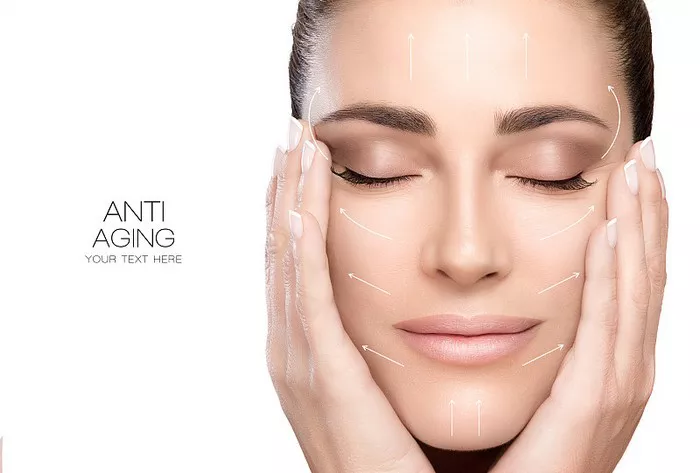Scars, visible imprints of the skin’s healing journey, often beckon individuals on a quest for interventions that can enhance their appearance. Amidst the myriad of scar treatment options, vitamins emerge as potential allies, offering a nuanced approach to scar fading. This exploration delves into the realm of dermatology, unraveling the role of vitamins in scar management and their ability to contribute to the process of scar fading. From the regenerative prowess of vitamin E to the collagen-boosting effects of vitamin C, each vitamin unveils a unique facet of scar care, guiding individuals along the path to recovery.
Understanding the Tapestry of Scarring
Before delving into the realm of vitamins, understanding the tapestry of scarring is essential. Scars, born from wounds and injuries, are the result of the intricate process of tissue repair. When the skin is injured, the body initiates a cascade of biological events involving inflammation, cell proliferation, and collagen deposition. Collagen, a structural protein abundant in the skin, forms the scaffold of scar tissue. The nature of this healing process, influenced by factors like genetics and wound management, contributes to the varied appearances of scars, ranging from hypertrophic and keloid scars to atrophic and pigmented scars.
Vitamin E
At the forefront of the scar-fading arsenal stands vitamin E, celebrated for its antioxidant properties and skin-nurturing capabilities. As an essential fat-soluble vitamin, vitamin E serves as a potent scavenger of free radicals, molecules implicated in cellular damage. When applied topically, vitamin E is believed to promote wound healing by reducing inflammation and preventing oxidative stress. While studies on vitamin E’s efficacy in scar fading present mixed findings, its role in maintaining skin health and suppleness makes it a valuable component of scar care routines.
Vitamin C
In the symphony of scar fading, vitamin C emerges as a luminous ally, orchestrating the production of collagen—the very fabric of skin strength and elasticity. Vitamin C, or ascorbic acid, plays a pivotal role in collagen synthesis, influencing the formation of this crucial protein during wound healing. As scars evolve, the application of vitamin C may aid in minimizing their prominence. Beyond collagen synthesis, vitamin C’s antioxidant properties contribute to protecting the skin from oxidative stress, fostering an environment conducive to scar fading.
Vitamin A
Venturing into the realm of cellular renewal, vitamin A takes center stage as the architect shaping the skin’s regeneration. Retinoids, derivatives of vitamin A, are renowned for their ability to accelerate cell turnover and promote the development of healthy skin cells. In the context of scar fading, retinoids contribute to smoothing the skin’s texture and may aid in diminishing the appearance of certain types of scars. However, caution is advised in the use of retinoids, as their potency requires careful application and monitoring to avoid potential side effects.
Vitamin D
As the skin basks in the sunlight, vitamin D, often referred to as the “sunshine vitamin,” becomes a participant in the scar-fading narrative. While vitamin D itself may not directly fade scars, its role in maintaining overall skin health is noteworthy. Adequate levels of vitamin D support the immune system, contributing to the body’s ability to manage inflammation and facilitate optimal wound healing. Considering the interconnectedness of skin health, vitamin D’s presence in scar care routines underscores its role in the broader context of skin wellness.
Vitamin K
Stepping into the realm of coagulation and beyond, vitamin K unfolds its multifaceted role in scar management. Known for its involvement in blood clotting, vitamin K contributes to the prevention of excessive bleeding during the initial stages of wound healing. As scars form, vitamin K may aid in minimizing discoloration, particularly in the context of bruising or vascular-related scars. While more research is needed to elucidate the extent of vitamin K’s impact on scar fading, its nuanced role adds depth to the spectrum of vitamins involved in scar care.
B Vitamins
The B-vitamin family, encompassing B1 (thiamine), B2 (riboflavin), B3 (niacin), B5 (pantothenic acid), B6 (pyridoxine), B7 (biotin), B9 (folate), and B12 (cobalamin), collectively contributes to the nourishment of the skin from within. These vitamins play diverse roles in cellular metabolism, energy production, and the maintenance of skin integrity. While specific B vitamins like niacinamide (B3) are recognized for their potential in improving skin barrier function and reducing inflammation, the collective synergy of B vitamins supports overall skin health, indirectly influencing the scar-fading process.
Combining Forces
In the pursuit of scar fading, the synergy of multivitamin approaches becomes a strategic consideration. Combining vitamins with complementary properties creates a comprehensive approach to scar care. For example, a topical formulation integrating vitamins C and E may harness their antioxidant prowess while addressing collagen synthesis. Similarly, incorporating vitamin A derivatives alongside vitamin B3 (niacinamide) can balance cellular renewal with enhanced skin barrier function. The nuanced interplay of vitamins, when carefully orchestrated, enhances the overall efficacy of scar-fading interventions.
Balancing Act
While the potential benefits of vitamins in scar fading are intriguing, a balanced and informed approach is crucial. Topical application of vitamins, whether through over-the-counter formulations or prescribed treatments, requires consideration of individual skin types, sensitivities, and the specific characteristics of the scars. Additionally, consulting with a dermatologist or healthcare professional can provide personalized guidance, ensuring that the chosen vitamin regimen aligns with individual skin needs and goals. The delicate balance of vitamin application extends beyond scar fading, contributing to holistic skin health.
Beyond Vitamins
As the journey into scar fading unfolds, it’s essential to recognize that vitamins are just one facet of a holistic approach to scar care. Hydration, sun protection, and lifestyle factors contribute significantly to the overall health and resilience of the skin. Maintaining a balanced and nutrient-rich diet, staying adequately hydrated, and protecting the skin from excessive sun exposure form integral components of scar management. In the realm of holistic care, the collaboration of various elements synergizes to support the skin’s innate ability to heal and rejuvenate.
Conclusion
In the symphony of scar fading, vitamins play a harmonious role, nurturing the skin’s renewal and contributing to the gradual transformation of scars. From the antioxidant grace of vitamin E to the collagen-boosting melodies of vitamin C, each vitamin adds a unique note to the composition of scar care. As individuals embark on their journey to fade scars, understanding the nuanced contributions of vitamins becomes a valuable guide. Yet, in this melodic pursuit, it’s essential to embrace a holistic perspective, acknowledging the multifaceted nature of scar care and the interplay of factors that collectively foster skin’s resilience and beauty.
[inline_related_posts title=”You Might Be Interested In” title_align=”left” style=”list” number=”6″ align=”none” ids=”3926,3924,3886″ by=”categories” orderby=”rand” order=”DESC” hide_thumb=”no” thumb_right=”no” views=”no” date=”yes” grid_columns=”2″ post_type=”” tax=””]
































